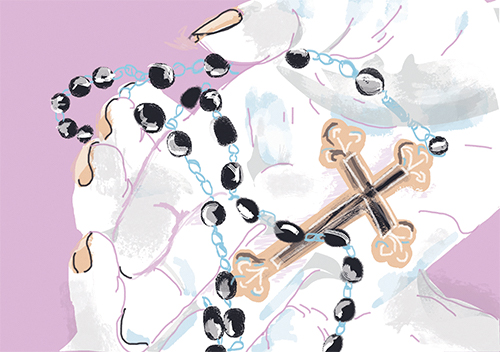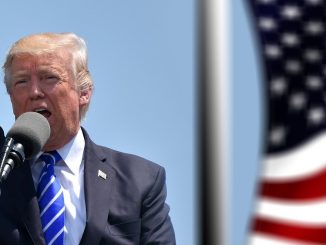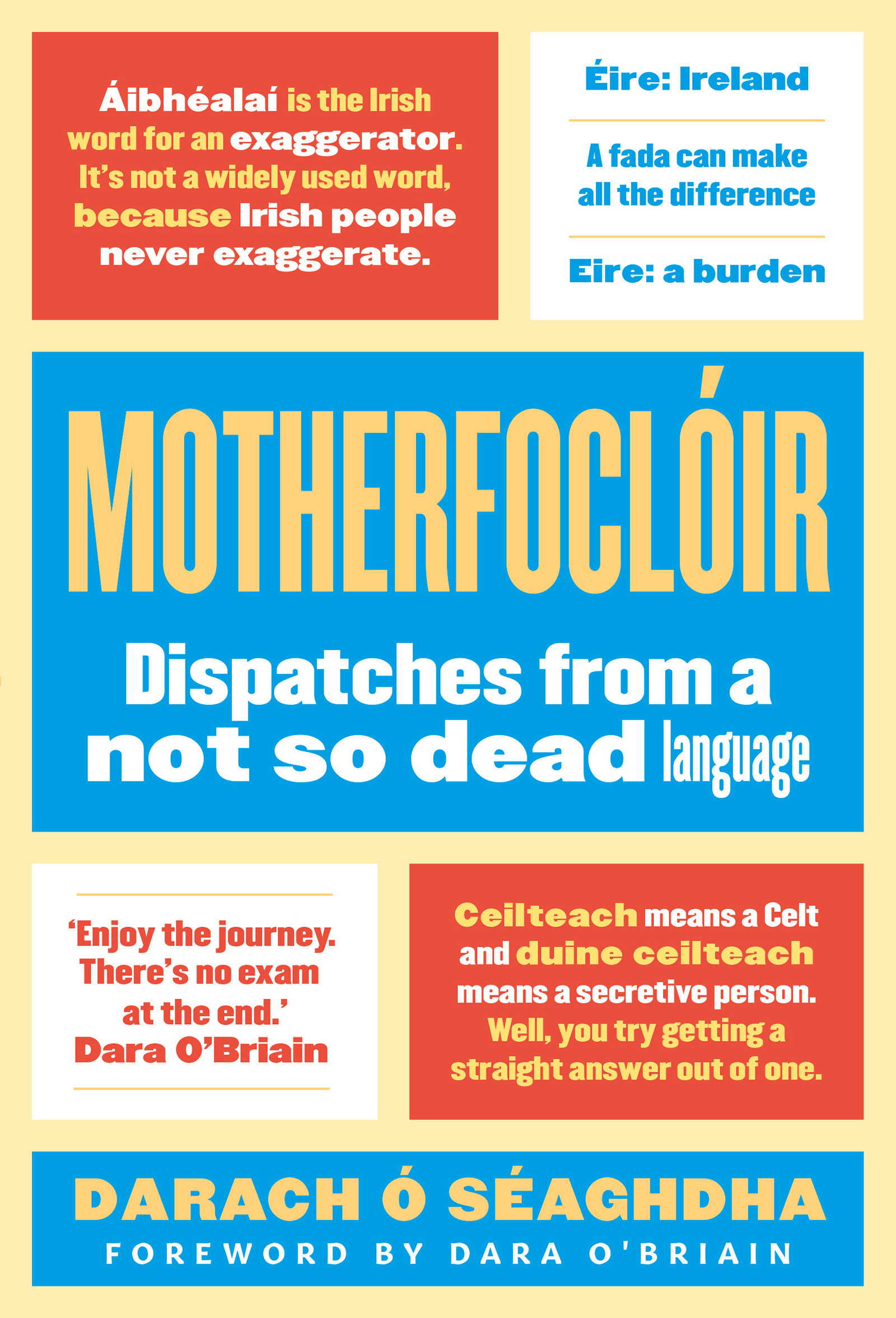
[dropcap]T[/dropcap]he consensus about whether or not the Catholic Church in Ireland has had a good year depends very much on who you ask.
If you ask the institution itself, it will cite its World Meeting of Families held in Dublin earlier this year, which saw a turnout of 10,000 people, many of whom came to witness the first ever visit of Pope Francis to Ireland.
Many believed that the Pope’s address to the people of Ireland, in which he repeatedly asked forgiveness for the “sense of betrayal” caused by the clerical sex abuse and cover up, was taking a first step towards making amends for the grievous hurt caused.
However, controversy emerged over the alleged exclusion of LGBTA people from the event as officials reportedly ignored the request of The Rainbow Choir for a stand, which caused
many to wonder where the Catholic Church stands in their relationship with LGBTA Catholics.
Speaking to The College View, members of the Church, Lay Catholic organisations and LGBTA Catholics themselves shared their image of religion and sexuality in 2018. Marianne McGiffin hadn’t heard the word ‘lesbian’ until she was 19. Growing up a Catholic from a “multi-faith background”, it was only when she attended Trinity College that she had her first “inkling” that she was gay, she remembered.
“I was at an English lecture and somebody mentioned a book called “The Well of Loneliness” by Radclyffe Hall,” she explained.
“The lecturer said that the main character was a lesbian, so I went over to the library and I looked it up, and it said a woman who loves women and I thought ‘God, that’s what I am!”
Growing up in a loving family, Marianne,who has a theology degree and a biblical studies degree, says she felt that as a result, God loved her too.
“Because I felt God loved me, I felt he loved me the way I was.” Like many other LGBT people she knows, she says she feels “ignored” by the Catholic
Church, first as a woman and then as a lesbian. She knows many people who have left the church, as a result of feeling “denigrated, and made feel like sinners or less than human.”
Unlike Marianne, Colm Holmes says he didn’t have a “particularly strong faith” until he met his wife, Seline, who confided in him about her calling to become a priest. Together with a family friend, a priest, they founded BASIC (Brothers and Sisters in Christ) in 1993, which later merged with We Are Church Ireland in 2002. Now part of the elected Core Group running We Are Church Ireland, Holmes is adamant that change in the church “must not come from the top”.
“We should all be involved in decision making within our church,” he said. The international We Are Church movement began in 1996 and arrived in Ireland a year
later. One of the organisation’s five main aims is to create an “inclusive church” that is welcoming to all and won’t “marginalize people because of their sexual orientation.”
However, Fr Seamus McEntee, a Roman Catholic chaplain at the Interfaith Centre at DCU, says he sees the church as already “very broad and as inclusive as possible” and is adamant that it is accepting of LGBTA people of faith. He says that in his experience, those speaking out against the church aren’t representative of all Catholic LGBTA people.
“It’s a particular community that does not represent all gay or homosexual people,” he explained.
“It’s a diverse community. I know many [LGBT people] who are very involved in their churches and very involved in their faith,” he said. “Not everyone does feel excluded.”
One issue of contention for many people is that Article 6 of the Catechism of the Catholic Church states that “homosexual acts” are “intrinsically disordered” and against “natural law”.
“That’s a terrible thing to say about anybody,” said Holmes. “We just think that that is wrong and it needs to be changed.”
“But it’s still there in the rules and regulations of the Catholic Church,” he added. While Fr. McEntee agrees that the wording is strong, he says that the Catechism also encourages the church to “show respect, compassion and sensitivity to people.”
“I would say that’s more important to me than using the word ‘intrinsically disordered’ he said.”
Dr. Claire Jenkins disagrees: “What you say publicly when you’re in a position of power, as the hierarchy of the church is, the words you choose to you will have a big impact on people,” she said.
Dr. Jenkins, who has a PhD from the University of Sheffield, transitioned in 1999. To her, there had “never been a problem” in her relationship with God.
“I’ve always thought God’s loved me as I am,” she said.
“Negative stuff about gay and lesbian people for example.. its not good, that just feeds prejudice.”
She says the church’s lack of a ‘comprehensive’ policy on trans issues such as priests who have transitioned, or the “spectrum of gender identities” is a help rather than a hindrance.
“I’m just fearful that any policy it ends up with, as I jokingly said, would make me a sinner.”
On the topic of people who are struggling with their identity and their faith, the advice is the same across the board.
“They are loved completely and intimately 100 per cent by God, for who they are and for being alive, because God only creates good things and good people in the world,” says Fr. McEntee.
Dr. Jenkins believes that God and Jesus “love” and “care” for young LGBT+ people. “My best advice would be to do what I do try to work out where there are priests who are going to be accepting and loving towards them, and there will be but finding them is not easy.”
“[Being gay] is a gift given to me, so that I can have empathy with people on the margins in other situations,” said Marianne.
“You can be a spiritual person, and a person in a relationship with Jesus without being able to belong wholeheartedly to a particular religious tradition.”
As for the future of the church, the outlook is slightly more divided: “I’m not very optimistic the church will change in any way,” Marianne continued.
“I’m not sure that my age group will come back to the church. I think they’re so fed up of it they wouldn’t come back.”
While commending Pope Francis for creating “far more openness and dialogue within the church, and to some extent in the Vatican,” Dr. Jenkins is adamant that the church needs to improve its language about LGBT people and transgender people in particular.
“The church needs to be careful with what it’s doing and saying, not to encourage violence against trans people,” she added.
Holmes say the Catholic Church in Ireland is aware of the work and aims of We Are Church Ireland, but “refuse to engage in any discussion”.
“They’ve been brought up in a hierarchical system, where they’re always looking to Rome for answers and whatever Rome says, goes.”
“I was born into this church and I was raised in this church,” he said.
“I like it warts and all, and I’m going to do my best to try and bring about change in this church, that it will happen and that we will become an inclusive church.”
Mary Ryan
Image Credit



